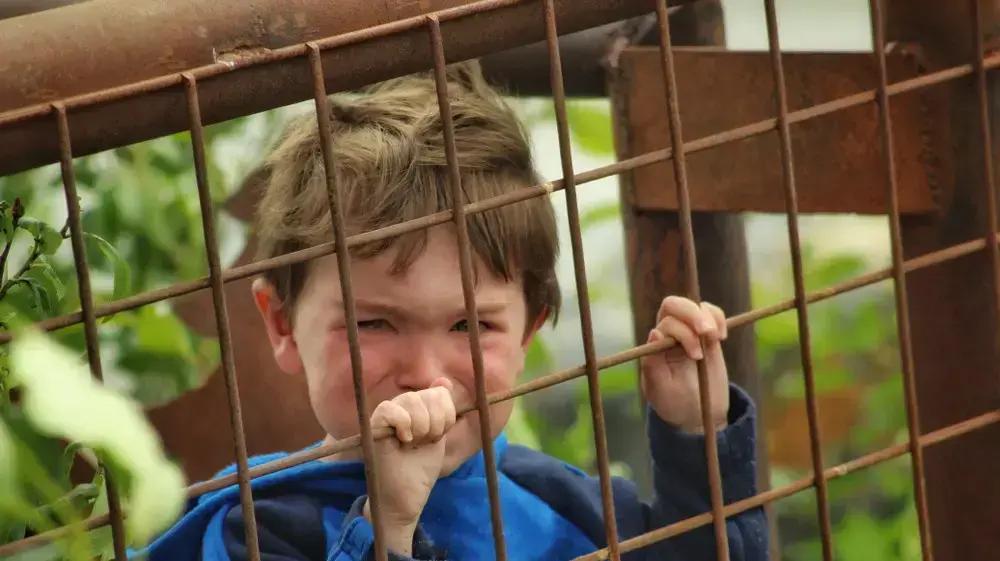health
parenthood
These are the 5 parenting tips that will interest you the most in 2020
If being a parent was not challenging enough, this year has come and added a difficulty we have not faced in the past.
Along with the long hours at home, the feeding factory and the multiple screen hours, is there a situation where we may have become better and more inclusive parents?
Tags
parents
Children
Education
Walla!
health
Friday, 01 January 2021, 07:02
Share on Facebook
Share on WhatsApp
Share on general
Share on general
Share on Twitter
Share on Email
0 comments
There is still a new vaccine on the horizon.
Father and his two children look out the window (Photo: shutterstock)
What a year it has been.
Ups and downs, closures and openness, hugs and nerves.
Everything from everything.
We all suffered, but there is no doubt that the parent public was one of the hardest hit.
And no, unfortunately no one is handing out prizes at the end of the event.
The parenting of us all has passed countless tests, some daily, some long-term, and others that only virtuous individuals can pass.
But the truth is that children are the main sufferers in general, and this year has brought with it quite a few regressions, social isolation, online studies and a lot of uncertainty.
This year we hosted here every month the advisers of the Adler Institute who tried to provide some logical and clear answer at a time when parents need to be perhaps stronger than ever, despite the great fog.
Here are some of the articles and parenting tips that interest you the most:
More on Walla!
NEWS
8 good things that happened to parents following the corona
To the full article
This is how you will teach your children to accept the other
No research is needed to know that there is significant importance in integrating children with special needs into regular kindergartens, and that this integration is a catalyst for leading them to a normative routine.
When children with special needs and normal children are combined, they eat, sleep and play together.
Thus the special children have a kind of role model and the way to integrate into a shorter community, and ordinary children get to accept the different in the most authentic way.
Unfortunately the closures and openness of schools over the past year have hurt this combination.
More on Walla!
NEWS
The corona closure affected your children just as much as you feared
This is why you must stop rushing out of line with a drop of milk
The weekly tip: choose the perfect bedroom for you
Here are some activities that every parent can prepare at home with existing games or with the help of a few pages, so that the children at home will learn to accept the other, even if they are not exposed to them as usual:
Doll simulation: You can take dolls, Lego or Playmobil figures and together with the children change the figures, for example you can make wheelchairs and add some of the figures or take out some of the Lego figure so that you look different from the rest.
You can then humanize the characters and play.
Preparing a slightly different memory game: We will cut squares of pages and make identical but different cards, ie the same animal / child / object, with the other card having something slightly different.
Reading books: It is very important that books with messages of acceptance of difference are placed on the bookshelf.
I recommend "Something Else" (by Catherine Kiev, English: Yehuda Atlas), "Wonder" (by Raj Palacio) and "Itamar Meets a Rabbit" (By: David Grossman).
Here are some more helpful tips
How was kindergarten?
A boy playing in kindergarten (Photo: shutterstock)
This is the way to get real answers from your kids
Quite a few hours pass from our farewell in the morning from the children until we meet again.
During these hours, our children go through a lot of experiences.
Starting with learning new content delivered by the educational staff, different creative works and different social situations.
When we come to take them home, the first question that comes to most of us's is - "How was your day in kindergarten?"
And the children?
They have learned to give us a short and laconic answer, which is satisfied with one word - "fun".
So how do you get real answers?
First and foremost it is important to choose the right timing, listen to the children and also share them in our day, and finally - ask 2-3 directed questions like "Who did you choose to play with today?", "What did you choose to eat?"
For all the tips click here
How do you educate children for empathy?
Raising children is perhaps the most difficult and important role that human beings are required to have, perhaps because parenting style directly affects the adult that will grow up in your home.
To raise a child who behaves equally, responsibly, independently, who will have a good sense of worth and who wants to have a positive impact on society and not harm the details in which he should be raised to care, solidarity, see the other, give up, reject gratification, contain frustrations, and most importantly, empathy education - the ability to put Myself in the other's shoes.
But there are some more simple steps to raising a great and empathetic child.
7 First Steps in Empathy Education
Shocking cases that cause justified fears.
A child cries in kindergarten (Photo: shutterstock)
How to identify abuse in kindergarten?
This was not only a year of Corona, but a year in which we witnessed a marked increase in cases of physical and mental abuse of kindergarten teachers and assistants in kindergartens in general and in private kindergartens in particular.
This phenomenon is a difficult and shaky phenomenon in which adults exploit the helpless, and it arouses, and not in vain, a lot of fears in every parent.
Unfortunately, parents often do not notice the same abuse and do not hear about it from their children.
There are a number of reasons for this, including the fact that these are children who are too young to understand or warn.
In addition, children by nature love the caring and familiar characters, even if the relationship is unhealthy, it is the relationship they know and know with those characters.
Sometimes they may also interpret the same abuse as a regular or routine punishment in kindergarten because that is what they are familiar with.
What to do?
Ask all the questions, do not be ashamed.
Listen to the children and know the warning signs.
What do you do when the child has difficulty saying goodbye in the morning?
Although these scenarios occur mostly at the beginning of the year, but after some closures and openness, family isolations and instability, some children still have difficulty parting in kindergarten and experience abandonment anxieties and crying scenes that include the parent’s perception of the legs.
It is important to remember that children's attachment to their parents is first and foremost a survival instinct.
This is their way of claiming a sense of security and protection.
In fact, when your child grabs your leg at the kindergarten gate or leaves the house and refuses to separate, this is his way of dealing with all the changes that have taken place in his world lately.
It could be that his anxiety is related to Corona and it could just be difficulty adjusting.
Here are some tips to help you break up
Share on Facebook
Share on WhatsApp
Share on general
Share on general
Share on Twitter
Share on Email
0 comments











